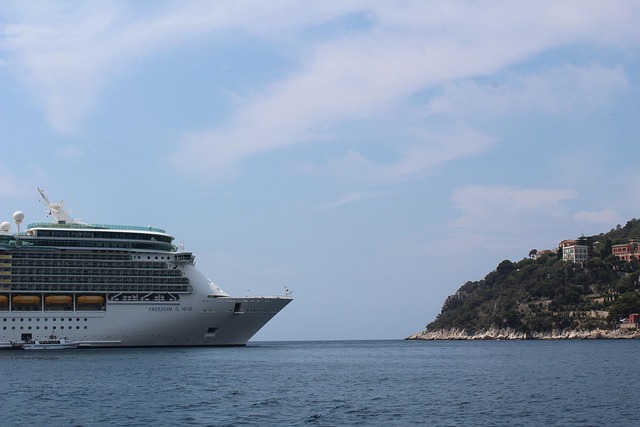Cruise ships run on more than travel, they rely on a wide range of roles.
The cruise industry operates as a floating city, requiring diverse professionals to maintain operations, safety, and guest satisfaction. Modern cruise ships employ thousands of workers across numerous departments, creating complex organizational structures that function around the clock. Understanding these career paths reveals how maritime hospitality combines traditional seafaring roles with specialized service positions, making cruise employment a unique sector within the travel and hospitality industries.

How Cruise Ship Careers Are Structured Across Different Departments
Cruise ship careers span multiple operational areas, each requiring specific qualifications and experience levels. Guest services departments handle reservations, concierge duties, and passenger assistance, typically requiring hospitality backgrounds and multilingual capabilities. Food and beverage operations encompass restaurant management, culinary preparation, and bar services, demanding professional cooking certifications or beverage service experience.
Entertainment divisions employ performers, activity coordinators, and technical crew members who manage theaters, pools, and recreational facilities. These positions often require performance experience, fitness certifications, or technical expertise in sound and lighting systems.
Maritime operations include deck officers, engineers, and safety personnel who maintain navigation, mechanical systems, and emergency protocols. These roles require maritime licenses, engineering degrees, or specialized safety training through recognized maritime academies.
Skills and Responsibilities Required for Maritime Hospitality Work
Working aboard cruise ships demands adaptability, cultural sensitivity, and stamina for extended contracts in confined environments. Staff members typically work seven days per week during contracts lasting four to eight months, requiring physical and mental resilience.
Language skills prove essential, as crew members interact with international passengers and colleagues daily. Many positions require English proficiency plus additional languages depending on itinerary regions and passenger demographics.
Technical competencies vary significantly between departments. Culinary staff need food safety certifications and experience with high-volume preparation. Guest services requires computer proficiency and conflict resolution abilities. Entertainment positions demand performance skills, fitness instruction credentials, or event planning experience.
Safety training remains mandatory across all roles, including basic safety training, crowd management, and emergency response protocols required by international maritime regulations.
Understanding How Cruise Ship Work Operates Through Structured Systems
Cruise ships function through hierarchical management structures with clearly defined reporting relationships. Department heads oversee specific operational areas, reporting to senior officers who coordinate with the captain and hotel director for overall vessel management.
Work schedules follow maritime standards with defined duty periods and rest requirements. Most positions involve split shifts accommodating port days, sea days, and evening entertainment schedules. Staff dining, accommodation, and recreational facilities operate separately from passenger areas, creating distinct living and working environments.
Communication systems ensure coordination between departments using maritime protocols, digital scheduling systems, and regular briefings. Emergency procedures require all staff to maintain specific certifications and participate in regular safety drills regardless of their primary job functions.
Compensation and Employment Terms in Maritime Hospitality
Cruise ship employment typically offers tax-free salaries due to international waters operation, though compensation varies significantly by position level and experience. Entry-level service positions may earn $1,200-$2,000 monthly, while specialized roles like chefs or entertainers can earn $2,500-$4,500 monthly. Officers and senior management positions often exceed $5,000 monthly.
| Position Category | Monthly Salary Range | Contract Length | Key Benefits |
|---|---|---|---|
| Entry Service | $1,200-$2,000 | 4-6 months | Room, board, medical |
| Experienced Service | $1,800-$3,000 | 4-8 months | Room, board, medical, crew facilities |
| Specialized Roles | $2,500-$4,500 | 6-8 months | Room, board, medical, potential tips |
| Officers/Management | $5,000+ | 2-4 months | Room, board, medical, vacation time |
Compensation packages include accommodation, meals, medical coverage, and crew recreational facilities. Many positions earn additional income through passenger gratuities, particularly in guest-facing service roles.
Prices, rates, or cost estimates mentioned in this article are based on the latest available information but may change over time. Independent research is advised before making financial decisions.
Career Development Pathways in Maritime Tourism
Cruise ship careers often follow promotion pathways within departments or across operational areas. Many professionals begin in entry-level positions and advance through experience, additional training, and demonstrated leadership capabilities. Cross-training opportunities allow staff to develop skills in multiple departments, increasing advancement potential.
Educational requirements vary considerably, from high school completion for basic service roles to specialized degrees for technical and management positions. Maritime academies, hospitality schools, and professional certifications provide relevant training for career advancement within the industry.
International experience gained through cruise work often translates to opportunities in land-based hospitality, event management, or other travel-related industries, making cruise careers valuable for broader professional development.
The cruise industry represents a unique employment sector combining maritime operations with hospitality services, requiring diverse skill sets and offering international work experience. These career descriptions provide general information about typical roles and industry standards rather than specific job availability. Prospective workers should research current opportunities through established maritime recruitment agencies and verify all employment terms and requirements independently before pursuing cruise ship careers.




